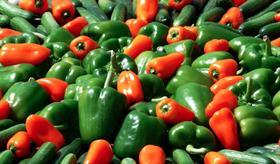
The European Food Safety Authority (EFSA) has published its annual report on pesticide residues found in EU food.
The report gives a snapshot of the presence of pesticide residues in food in the EU, Iceland and Norway and any possible risk to consumer health. It also provides risk managers with important information on which to base decisions regarding future control measures.
Of a total of 91,015 targeted and random samples analysed in 2018, 95.5 per cent fell within legally permitted levels.
The 12 products sampled were aubergines, bananas, broccoli, cultivated fungi, grapefruit, melons, sweet peppers, table grapes, wheat grain, virgin olive oil, chicken eggs and bovine fat.
The report includes 11,679 randomly collected samples from the same basket of products on a three-year rotation, allowing upward or downward trends can be identified for specific products.
The findings show that between 2015 and 2018 the proportion of samples with residue exceedances increased in bananas (from 0.5 per cent to 1.7 per cent), sweet peppers (1.2 per cent to 2.4 per cent), aubergines (0.6 per cent to 1.6 per cent) and table grapes (1.8 per cent to 2.6 per cent).
On the other hand, exceedances fell in 2018 compared to 2015 for broccoli from 3.7 per cent to 2 per cent.
EU‐harmonised MRLs are set for more than 1,240 pesticides covering 378 food products and groups. A default MRL of 0.01 mg/kg is applicable to nearly 690 of these pesticides, not mentioned in the legislation.
For the first time this year EFSA has translated the results of the coordinated programme into browsable charts and graphs, to make the data more accessible to non-specialists.
Bernhard Url, EFSA’s executive director, said: “For many years this report has supported the work of the European Commission and Member States in ensuring the proper use of pesticides in line with EU legislation and targets.
“Efficient collection and rigorous analysis of such data will continue to be of central importance in ensuring the safety of food sold in the European Union.”



